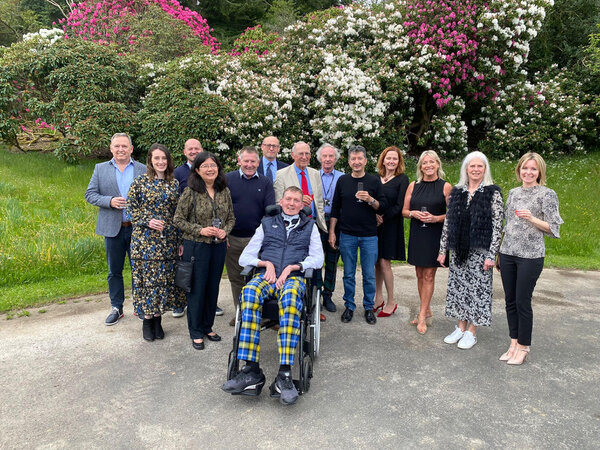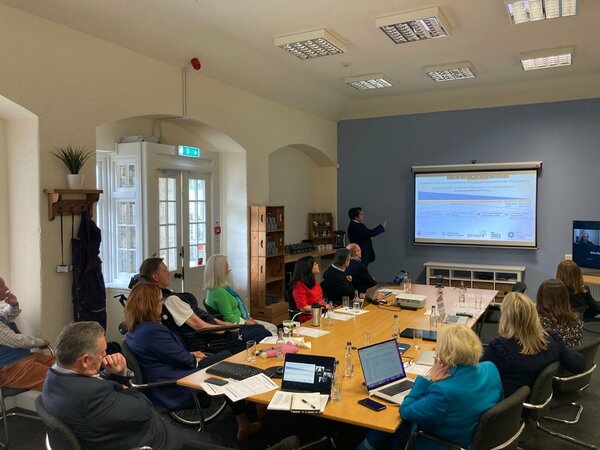Doddie Reflects on the Scientific Advisory Board Meeting
26 May 2022
26 May 2022
Over the last four and a half years I have been fortunate enough to interact with and learn from world-leading MND experts on a regular basis, thanks to the Foundation’s Scientific Advisory Board meetings. They are a chance to hear of recent developments, pipeline trials and a real opportunity to encourage collaboration and share experience among the UK’s MND research community. It’s also a chance for me, as someone living with MND, to share my own personal views and, occasionally, vent my frustration at the lack of options for MND patients . I appreciate that not everyone with motor neuron disease or their families and carers has the same opportunity so I thought I’d share my own insights into this week’s meeting which was held at Bowhill House near Selkirk on Monday, kindly hosted by Richard Scott, Duke of Buccleuch.
With the Foundation now approaching its 5th anniversary, we used the opportunity to ask our advisors about the impact we have made so far. The response was overwhelmingly positive, particularly in relation to the United to End MND campaign, which has seen a commitment for £50m from the UK government into targeted MND research. It’s true none of this money has yet made its way to the researchers who need it, but we discussed how we will continue to apply pressure on the government to ensure their promise is not forgotten.
I must admit, I am frustrated by what feels like lack of progress in finding new treatments for MND and I challenged those at the meeting with these concerns. This led to a discussion around the time it takes to deliver clinical trials, clinical trials having the right outcome measures (these are the tools they use to measure a participants progress on the trial), and why it can take so long to publish results. I am reassured the researchers are now, more than ever, aware of these issues and are actively taking steps towards ensuring research is not held up by these issues in future.
It was promising to hear about the number of new drugs being investigated for their potential to treat MND and about the progress of the MND-SMART and TRICALS studies that continue to allow more and more people with MND the opportunity to take part in research. Recently, we heard the news that oral edaravone has been approved to treat MND in the US; edaravone is not approved in the UK, but a clinical trial is being run in Europe right now to determine if this treatment might also become available on this side of the Atlantic.
I am extremely grateful to my team of consultants, nurses, physiotherapists and palliative care specialists who look after me and understand my needs. But I’m also aware of too many people with MND who can’t access the help they need. We welcomed Judy Newton, MND Nurse Consultant, to our meeting to talk about MND nursing in Scotland and this led to discussions about how to replicate this level of care across the UK and prepare for the future of MND nursing by training the next generation.
It was a busy few days and we have all come home with lots to think about. Our advisory board meetings are a window into the world of research and we will continue to not only share updates from these meetings with you, but ask questions of the experts and understand just how much more we need to be doing in the fight against MND.


